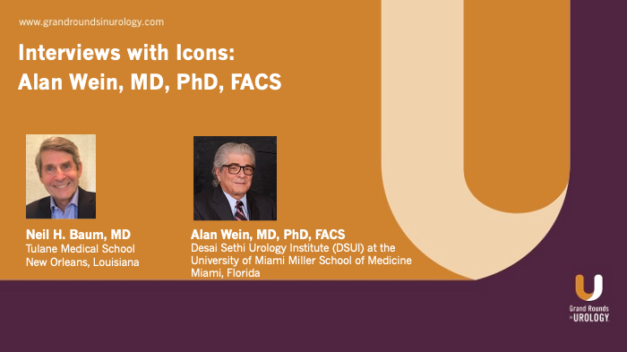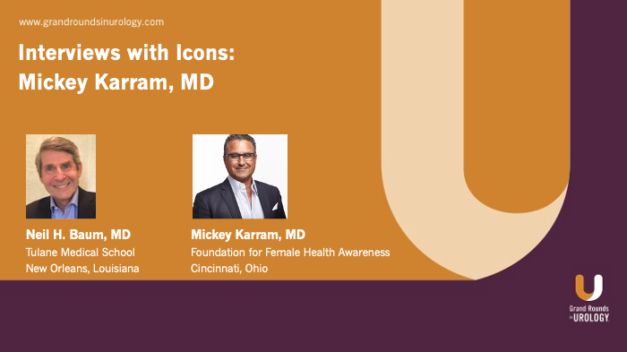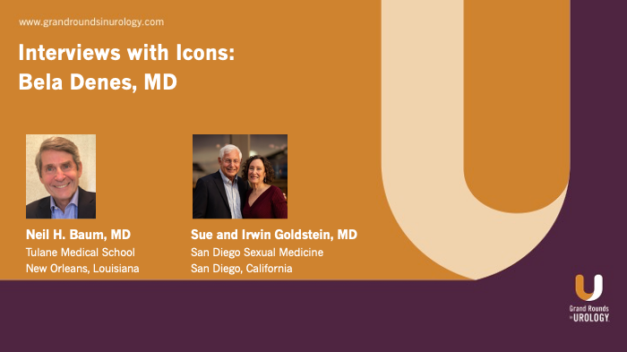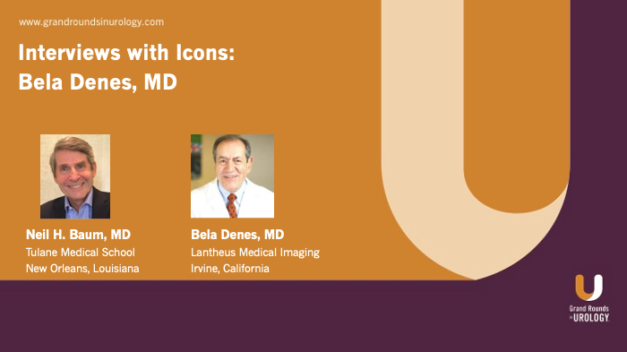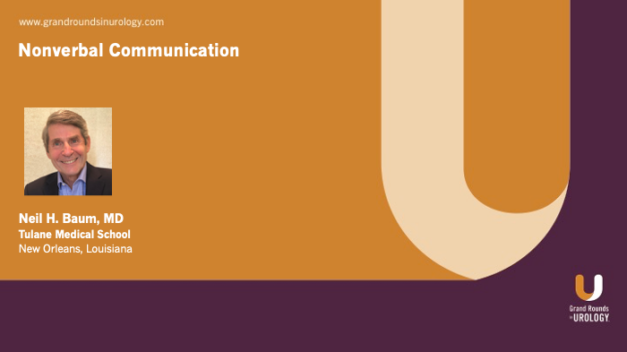Interviews with Icons: Alan Wein, MD, PhD, FACS
Grand Rounds in Urology Contributing Editor Neil H. Baum, MD, interviews Alan Wein, MD, PhD, FACS, on the past, present, and future of overactive bladder treatment in Urology. Among his many achievements, Dr. Wein has co-written or co-edited +30 books on Urology, including several editions of the textbook, Campbell Walsh Wein Urology, and holds editorial board positions on 14 journals. Additionally, Dr. Wein is largely credited as the researcher who lead the charge to rename “unstable bladder” to overactive bladder.
In this interview, they discuss Dr. Wein’s perspective on:
The History of Overactive Bladder
The Role of Pharmacology in Lower Urinary Tract Dysfunction
The Evolution of Incontinence and Overactive Bladder Treatments
The Role of AI and Telemedicine in Treatment
The Future of Urinary Incontinence and Overactive Bladder Management

